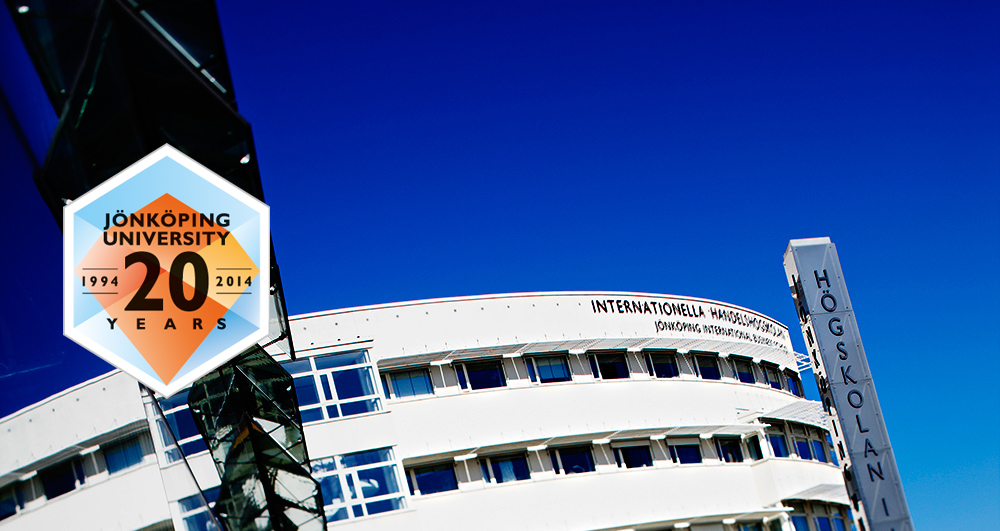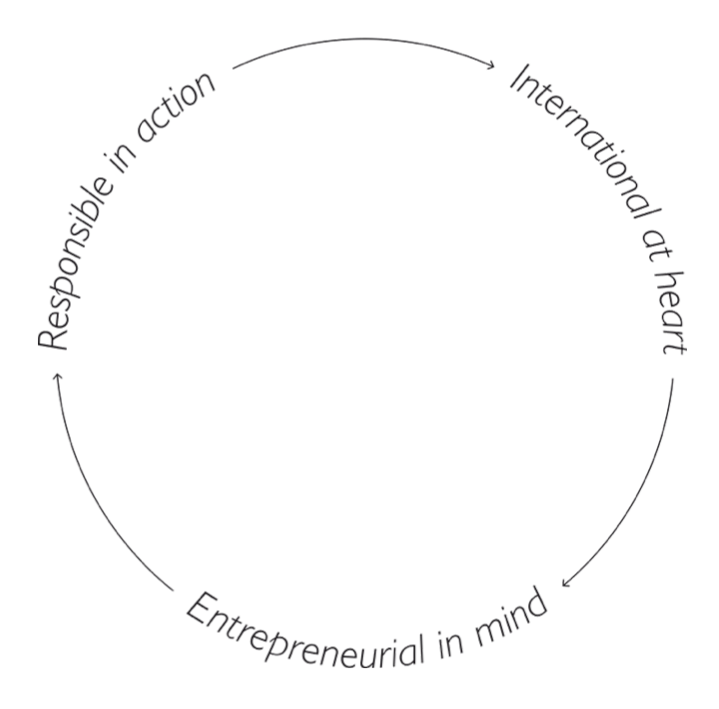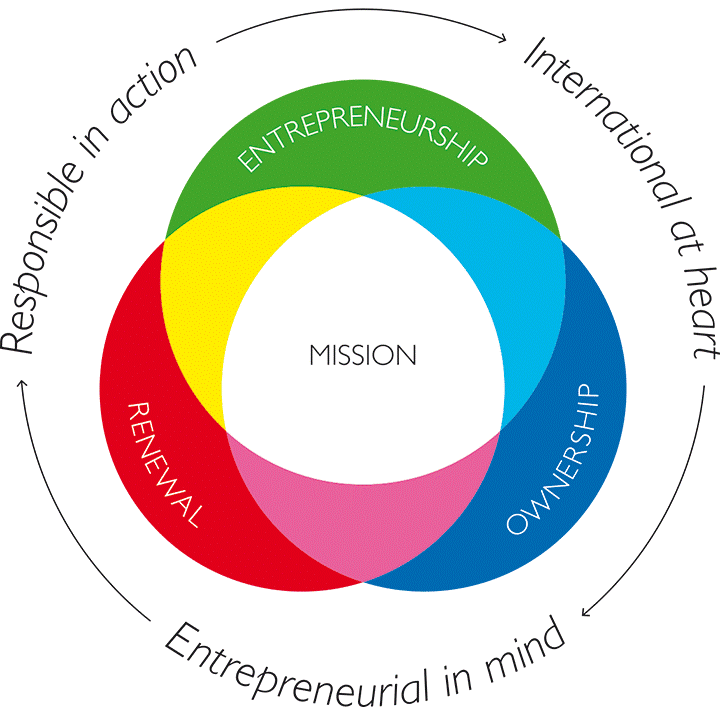Authenticity makes a difference
How do we respond to the onslaught of challenges facing universities and business schools? Here’s one thing I recently learned: When the world is changing, clinging to old models is a bad idea.

At the latest of AACSB annual meeting, one of the acknowledged authorities in the field, Howard Thomas, dean of the hosting business school at Singapore Management University, took a hard stance against the increasing sameness he finds in business education. He pointed out that many of us are too stuck in the US business school paradigm, with its core MBA program and devotion to publication in top journals, typically American. Professor Thomas, who is also a renowned strategy scholar, admonished his peers to “build an approach based on your own distinctive culture and capabilities.” His passion about this was evident, and he spoke from real authority. Professor Thomas has been the dean of leading business schools in both the US and EU before taking on Singapore.
The diversity of participants at the AACSB meeting was significant. We had delegates from more than 50 nations, making you think that business education is equally diverse. It is thus striking that the variety of nationalities and cultures are not mirrored in the global expansion of business schools and their research and education. In fact, in the face of falling revenues and increased costs, the 16.000+ business schools in China, India, in other countries in growing economics and in the rest of the world are converging.
Know thyself
Upon returning home, I mulled over what I had learned in Singapore as it pertained to JIBS. We are just one of many places for business education in a small country, Sweden. I reflected on how JIBS sticks out from the crowd. How are we building on the distinctive capabilities of the place and culture we’re based in? At SMU, Professor Thomas and his team have been taking advantage of the deep culture surrounding the school. Located in what is sometimes called “the red dot of Asia,” this young business school has started to attract top students from all over the world by promoting and synchronizing with the international business place that Singapore has become. SMU is leveraging the culture and capabilities of Singapore as distinctively as the giant ship model sitting on top of the location of the AACSB meeting, Marina Bay Sands Hotel, reminding visitors of the great history that Singapore holds as one of the world’s top global trading centers. This business school thinks globally based on a solid understanding and appreciation of their unique local context in Singapore, in Southeast Asia, and in the world.
Exhibit 1: Marina Bay Sand, Singapore
My sense is that JIBS has been equally pursuing a distinctive model of business education linked closely to our culture and capabilities. It was established 1994 to be an international business school, with special attention paid to entrepreneurship and SMEs. That profile connected well with the location, history, and culture of Jönköping and its region, distinct from the big business and “yuppie” culture of the capital, Stockholm. The school flourished in its first 10 years, meeting the educational and research needs of its charter within two years after the EU had integrated in 1992.
From this tradition, culture, and capabilities, just two decades after its inception, we have articulated three principles that form the cornerstones for JIBS’ strategy and day-to-day operations.
International at Heart.
Jönköping is an old trading center (Swedish: “Köping”) at the lower end of the lake Vättern, which divides the southern part of Sweden into two counties. It has been a crossroads between the country’s north/south and east/west routes since it was awarded its city rights in 1284, when trade and wars with Denmark were commonplace. Today the city has become a major logistics center, and the ancient trading tradition has evolved into a strong export profile among the many production-oriented companies in the region today. JIBS’s first guiding principle International at Heart follows naturally from this tradition. It reflects our open culture that can simultaneously take a local, regional, national and global perspective. Proof of this can be seen in the fact that, in less than two decades, JIBS has evolved into being one of the most international business schools in the Nordic region in terms of nationalities among our students, faculty, professional staff, worldwide partnerships, student exchanges, research and more. Grounded in the historical context of our host-region and home country, being international at heart is not just an aspiration but a reality to most JIBS’ers, as we call ourselves.
Entrepreneurial in Mind.
The Jönköping region is also characterized by a no-nonsense, do-it-yourself, bootstrap approach to starting and developing companies. “Self-made” in various shades of success is what generates admiration among our locals. The corporate demography in the region is heavily skewed towards small- and medium-sized enterprises (SME), and “family-owned” is a venerated hallmark for many of them. This is the land of smart entrepreneurship and proud entrepreneurs, and JIBS alumni dominate the start-ups in the Science Park on the campus. Our second guiding principle mirrors this culture. It reflects our respect for the spirit of being curious, imaginative, passionate and action-oriented. Entrepreneurship often refers to brand new start-up businesses, and so our JIBS students are trained and encouraged to create new ventures. But we also have in mind a deeper meaning of entrepreneurship at JIBS; this is to be entrepreneurial-thinking in a broader sense and in many contexts. It is about contributing to new growth and having adventurous and innovative perspectives. This ideology trickles through in how we have reorganized the school (e.g., no departments), how faculty members now work, how we educate students in new ways, and, hopefully, how our graduates are contributing value to society.
Responsible in Action.
This third guiding principle underlying our strategy mirrors the Nordic model of balancing economic and social value creation. We seek to integrate ethics and sustainability into our everyday life. Responsible in Action stands for making a commitment to be a role model within the education industry, as well as to research, educate, and engage with the broader society around us. We may not always succeed at the level we intend, but we work hard at JIBS to bring these implicit assumptions into practice. For example, together with 500 business schools worldwide we have committed to gradually implement the six principles of the UN’s Principle for Responsible Management Education (PRME).
Exhibit 2: JIBS’ guiding principles
These three principles are cornerstones for how we differentiate JIBS among our peers and competitors. They both mirror and build on the distinctive culture and capabilities of our school, our city, our nation and the Nordic region. We use them to promote the evolution of JIBS as a business school over the last two decades and they have become a beacon for our new major initiatives such as our recent engagement in Africa, which we call In-to-Africa.
In collaboration with the Swedish Development Agency (Sida), we have developed a unique approach to build competence in Africa. After two years of delivering Master and PhD courses in Ethiopia, we created a unique “sandwich” model to build PhD capacity in Rwanda. In April 2014, we selected seven highly qualified PhD candidates from Rwanda into our PhD program in economics and business administration. Over the next four years, they will alternate between Jönköping and their home country, between taking courses and writing a thesis, continuously guided by supervisors in both places. Because of its strategic importance to JIBS, I am the primary supervisor for two of these PhD candidates.
How does this initiative reflect our three guiding principles?
The connection to International at Heart is clear, and in a part of Africa where Sweden and Jönköping have historical development and aid connections. Entrepreneurial in Mind? Absolutely, both in terms of the initiative as such and the way we are already linking the PhD candidates with our faculty members, our other PhD candidates from all over the world, and with our diverse group of Bachelor and Master students. Eventually, we will introduce them to interested entrepreneurs in our region and be prepared to support whatever emerges. As for Responsible in Action, there is no doubt. On the macro-level, our program contributes to building capacity in a growing economy and early democracy like Rwanda. On the micro-level, it is the right way to engage and encourage self-development among all the individuals involved.
What we see depends on who we are.
The message from Singapore is something all of us in business education need to hear. The consistency between one’s socio-economic, political situation, and the comparative advantages of one’s location matter as much for JIBS as they do for any business school anywhere. I have certainly come to see this as an important driving force in my role as Dean at JIBS. It’s about living up to our authenticity.
Moving forward and grounded in our guiding principles, JIBS scholars are developing new knowledge about three economic, political and social challenges that cut across traditional academic silos: Entrepreneurship, Renewal, and Ownership.
Exhibit 3: JIBS focus areas within the guiding principles
In some organizations, these three challenges come in a different guise such as innovation, change, and shareholder value. Governments in Sweden, Singapore and the rest of the world struggle to encourage such triple-helix collaboration between universities, companies, and the public sector to improve public services and cultivate private start-up ventures.
No matter what we call them though, these are focus areas for JIBS’ strategic agenda in research, education, and how we increase our footprint in the broader society. As a result, over the last few years at JIBS, we have been renewing and strengthening our strategy, organization, governance model, program portfolio, portfolio of international partners, and even our board of directors. From our small city in Sweden, it is with both feet on the ground that JIBS will march forward, reaching out and engaging globally whenever and wherever it makes sense. It is with a sense of pride over our unique roots and corresponding guiding principles that we are authentically heeding Howard Thomas’ call to keep “creeping sameness” at bay.
Read more:
Karin Hellerstedt – International at heart, International at start – Att snabbt internationalisera en verksamhet
Andrea Resmini – Forrest Gump, Playstation and the invasion of international students
Charlotta Mellander – Varje handelshögskola kräver sina stjärnforskare
Mattias Nordqvist – En internationell handelshögskola föds
Detta är en bloggtext. Det är skribenten som står för åsikterna som förs fram i texten, inte Jönköping University.








